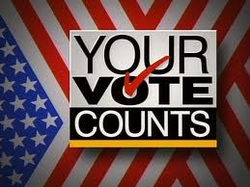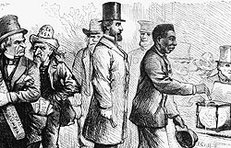 This has been a great week for those on the front line defending voter's rights. As reported by Talking Points Memo a federal judge in Ohio on Friday restored early voting rights in the three days before the election, ruling in favor of the Obama campaign. On Thursday CBS News reported that a federal court has ruled against a Texas law that would require voters to present photo IDs to election officials before being allowed to cast ballots in November. On Wednesday civic groups and Florida voters scored a decisive victory when a federal judge indicated he will permanently remove controversial restrictions on community-based voter registration drives.  At least 180 restrictive bills were introduced since the beginning of 2011 in 41 states. There are approximately 47 bills currently pending in 12 states. Since the beginning of last year 24 laws and 2 executive actions in 19 states have been enacted. Additionally 16 states have passed restrictive voting laws that have the potential to impact the 2012 election. These states account for 214 electoral votes, or nearly 79 percent of the total needed to win the presidency. Of these, 13 laws and executive actions are currently in effect in 9 states. How did this happen? How could 180 bills get introduced without anyone clamoring about it? No media coverage, no press coverage, no nothing. Now that we’re in a presidential election year voter suppression is the hot topic and the focus of everyone’s attention. Sounds like closing the barn door after the horse has left. Now we’re scrambling to fix what we shouldn’t have let happen.
 Lately there has been a lot of talk about voter suppression laws, its impact, and the role that ALEC has played and is playing to get these laws passed. Before I get into the importance of understanding the danger of these laws, we need to understand how this is happening and ALEC’s (American Legislative Exchange Council) role in all of this. ALEC‘s membership roll is literally a who’s who of major corporations, state, and local officials. It mission is to “ provides a constructive forum for state legislators and private sector leaders to discuss and exchange practical, state-level public policy issues”. ALEC assists in the creation of “model bills” that in some cases are the basis for the ones that are introduced during the state legislative sessions. In other words corporations are working with our elected officials to affect change. On the surface this may not sound like a bad idea, the problem is that ALEC is all about the conservative agenda. This agenda is not necessarily in our best interest. |
EditorErnest R. Heyward is the Founder and President of the Marketplace for Social Awareness and Social Responsibility Inc. Categories
All
Archives
June 2020
|
MARKETPLACE FOR SOCIAL AWARENESS AND SOCIAL RESPONSIBILITY INC.



